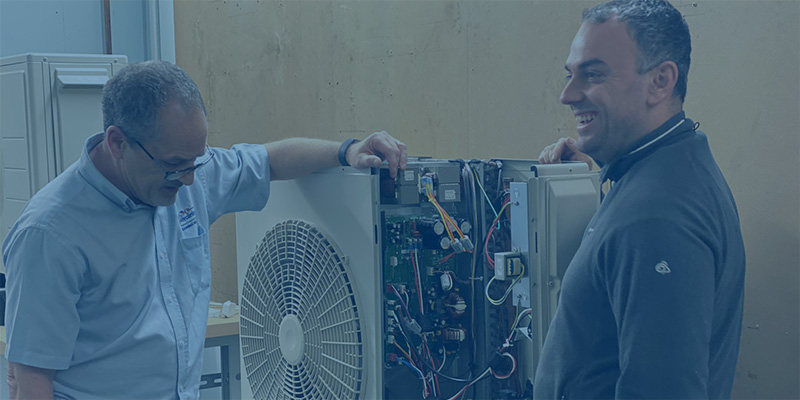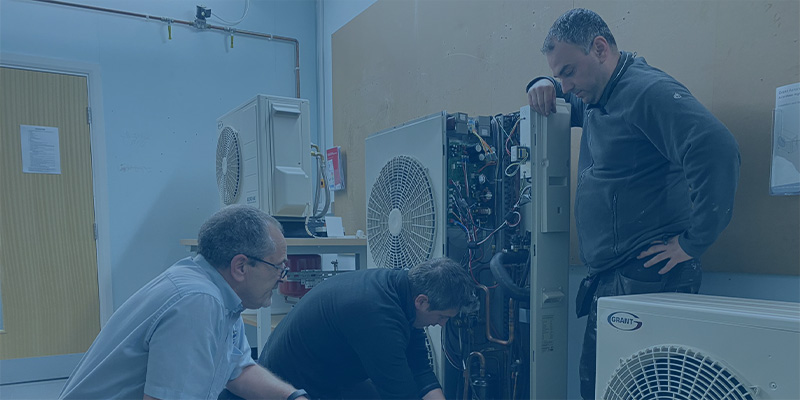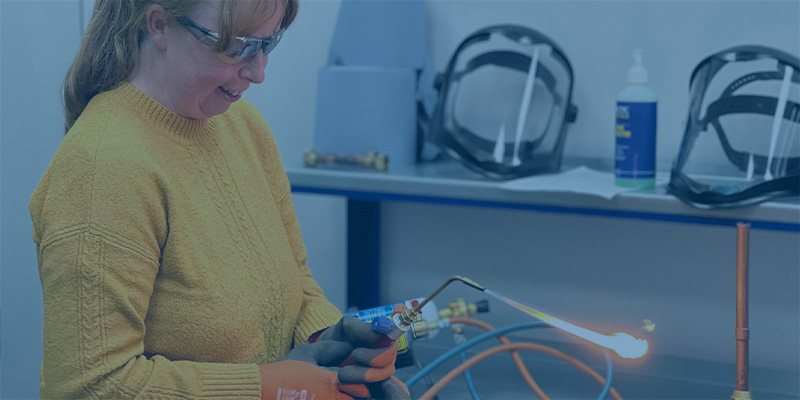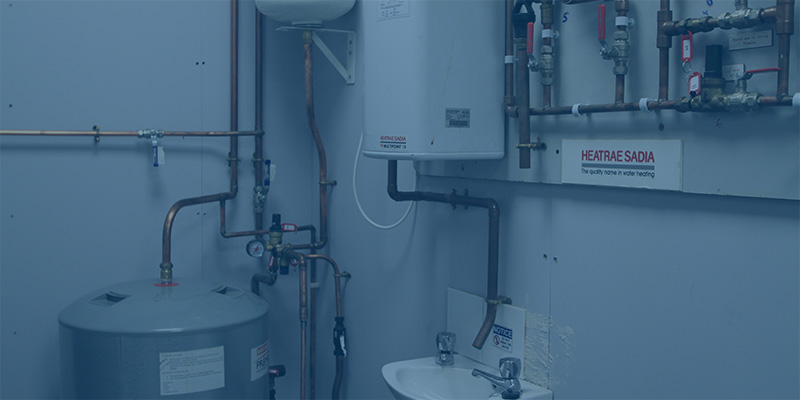
This Level 3 course is for engineers looking to top-up to their Air Source heat pump (ASHP) qualification in order to install and maintain Ground Source Heat Pumps (GSHPs) - non-refrigerant circuits.
The ASHP course includes common core units relevant to both types of heat pump.
The LCL Awards RQF Level 3 Award in the Installation and Maintenance of Heat Pump Systems course has been designed for experienced heating installers who wish to fit ground source heat pumps in domestic and small commercial properties.
Training covers both ground to water technologies and meets the training entry requirements for the Microgeneration Certification Scheme (MCS).
Thanks to legally binding targets to cut carbon, the introduction of the Boiler Upgrade Scheme and an uplift to Part L of the Building Regulations which focuses on Low Temperature Heating & Hot Water Systems, heat pumps are a natural development for the heating market and should be considered by any heating installation company or engineer; whether they work with gas, LPG, solid fuel, oil or bio-mass.
Visit our renewable energy blog posts for regular updates on what is happening in the green energy sector.
The cost of the course includes training, assessment, the certification fee and a course manual.
We also offer the air source heat pump course at £525 (3 days). Call 0208 845 7222 to find out more.
In order to attend the course, operatives must hold one of the following:
- A Level 2 or Level 3 NVQ or SVQ in plumbing / heating & ventilation / gas / oil – Installation and Maintenance qualification
- A valid Core Gas Safety (CCN1) certificate – must be involved in the installation of heating systems
- An OFTEC Oil certificate
- A valid HETAS certificate
- Two years minimum working in the plumbing and heating sector.
Operatives must also hold all of the following qualifications (if they are not held as part of an NVQ):
The Ground Source Heat Pump course is intended for experienced domestic heating installers who wish to up-skill to include ground source and/or air source heat pumps in their offering.
The course will enable operatives to specify, survey, design and install domestic or small commercial heat pump systems, enlisting manufacturers support where required. Systems up to 24kW for ground source and 16kW for air source heat pumps are covered, plus the following areas:
- Background to market
- Heat pump regulations and guidance
- Principles of ground and air source heat pump operation
- Heat pump collector types
- Heat distribution
- Pre-installation requirements
- Installation materials and methods
- Filling, flushing and testing
- Setting to work, commissioning
- Heat pump servicing and fault finding
Logic4training’s Heat Pump course includes a practical and written assessment. The written assessment takes the form of a multiple choice question paper and a design scenario. Successful candidates will be issued with a RQF Level 3 Award in the Installation & Maintenance of Heat Pump Systems by LCL Awards.
During the design of any heat pump installation, accurate calculation of the heat load requirement is imperative to ensure optimum and efficient operation of the system. Calculating building load and heating system design is not covered in great depth in this course. Operatives without this knowledge should employ the services of a suitably qualified person and seek manufacturer’s guidance and do the low temperature heating and hot water course.
The course does not cover the filling, evacuation or breaking of the refrigerant circuits, this should only be carried out by a qualified refrigeration engineer. Logic4training offer the Fgas course for those needing to handle refrigerants.
A course manual is supplied during the course and the following documents provide useful background reading:
Microgeneration Certification Scheme Technical Standards
Domestic Ground Source Heat Pumps (EST – CE28)
Guide to Renewables on Existing Buildings (EST – CE102)
Guide to renewables for Developers (EST- CE190)
A ground source heat pump works by extracting heat from the ground through a network of pipes buried underground. This heat is then transferred to your home to provide heating and hot water.
Training to become a heat pump installer can take from a few weeks to several months, depending on the course and prior experience. Comprehensive training programs cover both theoretical knowledge and practical skills. If you have the pre-requisit experience (see entry requirements) training will only take 2 days.
MCS certification ensures that the installation meets high standards, which is crucial for customer confidence and for eligibility for various financial incentives.
To install a ground source heat pump, you typically need qualifications in plumbing and heating, such as an NVQ Level 2 or 3 in Plumbing and Heating, as well as specific training in ground source heat pump installation.
Our LCL Awards Level 3 qualification was designed in collaboration with CIPHE and the Heat Pump Association to meet new requirements for all heating systems to be designed with a low temperature from the outset. This course covers all heating systems, from heat pumps and Biomass to gas, oil and LPG, supporting engineers to deliver energy efficient heating systems, whatever the fuel. Training covers industry standards and regulations, heat loss calculations, design principles and more. Find out more and apply here: https://www.logic4training.co.uk/courses/renewables/low-temperature-heating-courses/low-temperature-heating-and-hot-water-systems-in-dwellings-training-course/











